
THE BIOLOGICAL EXPLANATION
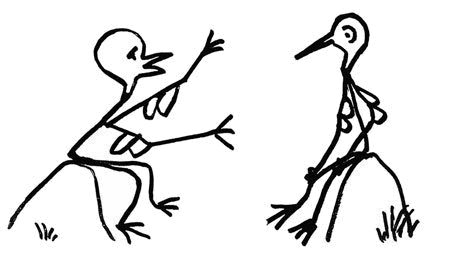
“The Adam Stork analogy was an eye-opener; not the first time I read it, although it made sense. But after maybe the fourth or fifth time, reality hit hard and I agreed that this really makes sense—how that transition between having animal instincts and then a conscious mind changed the history of humankind. For me that has been the most amazing moment in the whole reading of Jeremy’s work.” Carlos Cruz Blanco
Biological Explanation of the Human Condition
Key to Jeremy’s explanation of the human condition is an understanding of the difference between our instincts and intellect, and the effect that difference has had on our behaviour. He explains that when we humans developed a conscious mind some two million years ago, a battle unavoidably developed between it and our already established instincts. Natural selection of genes gives species’ instinctive orientations, such as to a migratory flight path for birds, but a nerve-based conscious mind needs understanding to operate, so when a fully conscious mind emerges and begins experimenting in understanding it unavoidably comes into conflict with the already established instinctive orientations that are in effect intolerant of these deviating experiments in self-management.
The result of this conflict between our instinct and intellect was an undeserved sense of guilt and insecurity that caused us to become psychologically defensive, angry, alienated and egocentric, the upset state we refer to as the human condition—a state we sought to alleviate through a competitive, selfish and aggressive bid for the reinforcement we could gain from winning power, fame, fortune and glory. But now that we can explain and understand this conflict and the guilt it produced, all those insecure, defensive behaviours are obsoleted, brought to an end, and we free ourselves from the human condition.
Read more about the explanation of the human condition in Freedom Essay 3 which includes the following Adam Stork analogy that Jeremy uses throughout his work to illustrate the emergence of our species’ human condition.
Humanity's Heroic Journey — The Story of Adam Stork
-
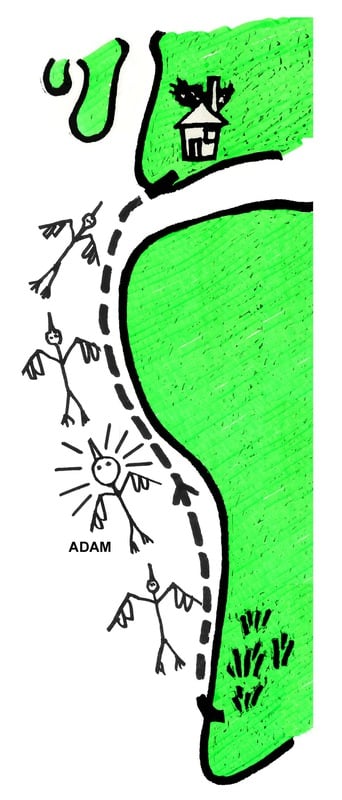
Adam becomes
conscious -
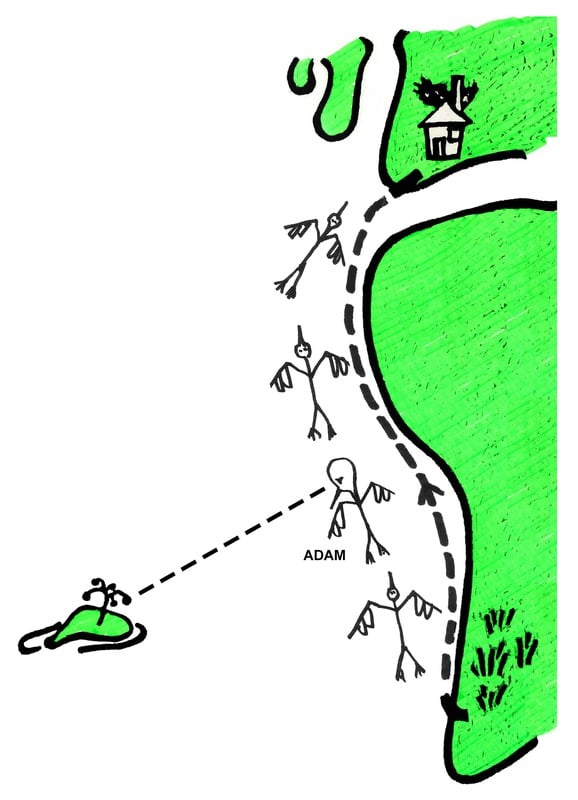
Conscious Adam starts
to use his intellect -
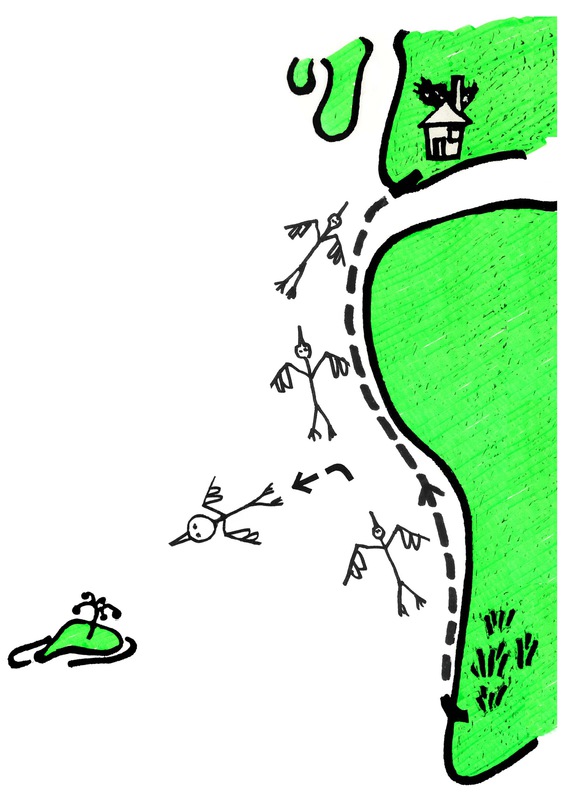
Adam disobeys
his instincts -
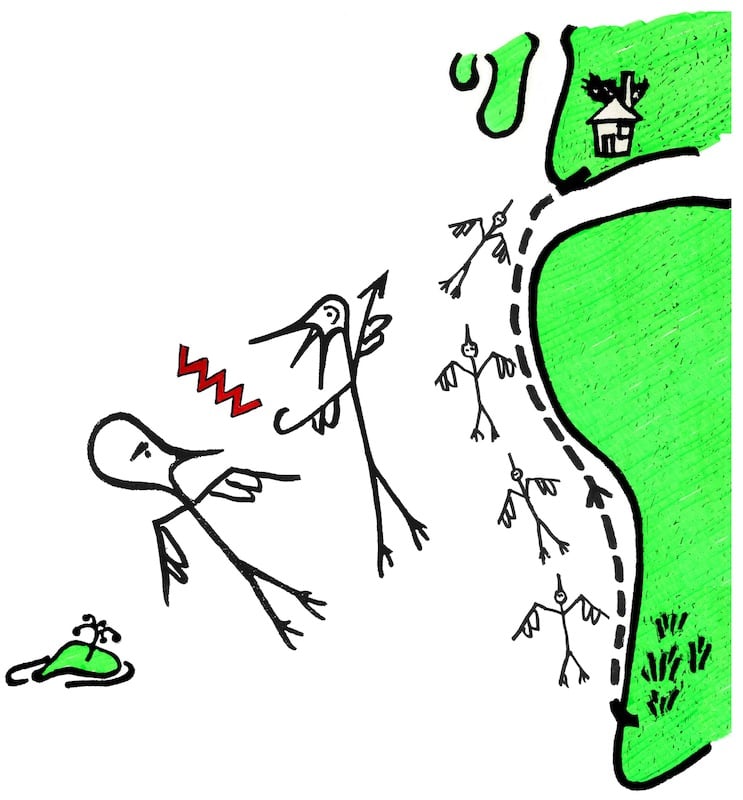
Conscious Adam gets criticised
by his instincts
“Adam Stork was never going to free himself from this condemnation until he could sit down with his instincts and explain, using first principle biology, why he had to fly off-course”
Jeremy Griffith, Australian biologist
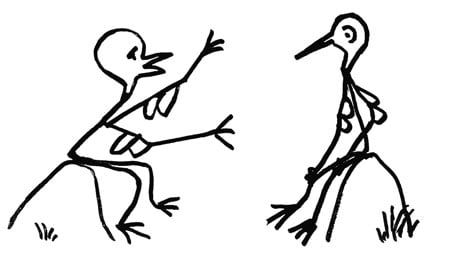
“They [science and religion] both represent man’s efforts to understand his universe and must ultimately be dealing with the same substance. As we understand more in each realm, the two must grow together…converge they must.” Nobel Prize-winning physicist Charles H. Townes
Scientific understanding of the Human Condition enables us to fully appreciate how profound religious truths are
“To have religion explained in a more scientific way, and to explain why, finally, we are the way that we are, giving hope at the same time, is what has helped me the most to understand myself and the people around me.” Carlos Cruz Blanco
The following is an extract from Freedom Essay 41: Is science’s scorn of religion legitimate? by Jeremy Griffith.
Now that we have the scientific explanation of the human condition (see Video/F. Essay 3), we can see how extraordinarily insightful some religious metaphors are.
For example, now that we understand that our angry, egocentric and alienated state was the result of a clash between our emerging consciousness (see F. Essay 24) and our pre-established, loving instincts (see F. Essay 21), we can appreciate just how accurate the Biblical story of Adam and Eve, Moses’s 3,500-year-old, pre-scientific description of the human condition, is.
-
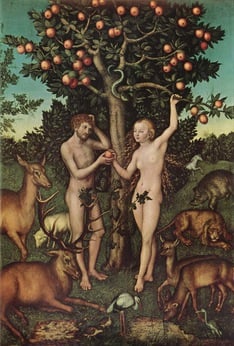
Adam and Eve
by Lucas Cranach the Elder, 1526 -
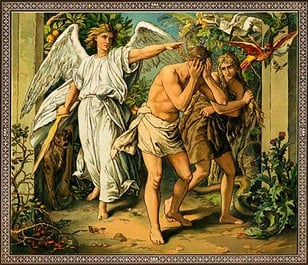
Adam and Eve cast out of Paradise, from Old Testament Stories, pub. Society for Promoting Christian Knowledge, London, c.1880
The book of Genesis story of Adam and Eve in the Garden of Eden describes the primary situation involved in our human condition of the psychologically upsetting battle that emerged between our instincts and our conscious intellect’s search for knowledge. It says Adam and Eve/we were ‘created…in the image of God’ (Genesis 1:27), obviously meaning we once lived in a pre-human-condition-afflicted state of original innocence where we were perfectly instinctively orientated to the cooperative, selfless, loving, integrative, ‘Godly’ ideals of life (‘God’ being explained in F. Essay 23 as being the integrative meaning of life). The Genesis story then says that Adam and Eve were ‘disobedient’ (the term widely used in descriptions of Gen. 3) and ate the ‘fruit’ (Gen. 3:3) ‘from the tree of knowledge of good and evil’ (Gen. 2:9, 17) because it was ‘desirable for gaining wisdom’ (Gen. 3:6). In other words, we developed a conscious mind and free will. The story then says Adam and Eve (i.e. we fully conscious humans) then became perpetrators of ‘sin’ (Gen. 4:7) and were regarded as ‘evil’ (Gen. 3:22), and as a result were ‘banished…from the Garden of Eden’ (Gen. 3:23) of our species’ original Edenic state of innocence (the dictionary definition of ‘Edenic’ being ‘the first home of Adam and Eve…a state of innocence, bliss, or ultimate happiness’ (The Free Dictionary)). So the story recognised that our ‘fallen’ (derived from the title of Gen. 3, ‘The Fall of Man’), corrupted angry, egocentric and alienated, psychologically upset, human-condition-stricken state developed, which then, through ‘gaining wisdom’, had to be understood in order for us to become ‘like God, knowing good and evil’ (Gen. 3:3), a state of psychologically relieving and rehabilitating understanding that has now arrived and is presented in FREEDOM.
We can see that Moses’s account of the origins or ‘Genesis’ of the human condition recognises the elements of an original instinctive orientation which then came into conflict with a conscious mind. All Moses lacked to fully explain the human condition was the scientific explanation of the difference between genes and nerves, which defends our ‘disobedience’. It is this explanation that is presented in FREEDOM (and Video/F. Essay 3) that finally allows us to understand that even though we became immensely psychologically upset sufferers of anger, egocentricity and alienation for participating in humanity’s search for knowledge, we weren’t ‘evil’; in fact, we are the heroes of the story of life on Earth! However, this redeeming insight, that Moses lacked the scientific knowledge to be able to explain, was to take a further 3,500 years to discover!
It is of some significance that while Moses’s account is perhaps the most widely recognised, virtually all religions contain a metaphor about the rise of consciousness corrupting an innocent state—as the author Richard Heinberg notes in his book Memories & Visions of Paradise (see F. Essay 53 for more from Heinberg, along with examples from mythology):
“Every religion begins with the recognition that human consciousness has been separated from the divine Source, that a former sense of oneness…has been lost…everywhere in religion and myth there is an acknowledgment that we have departed from an original…innocence and can return to it only through the resolution of some profound inner discord…the cause of the Fall is described variously as disobedience, as the eating of a forbidden fruit [from the tree of knowledge], and as spiritual amnesia [forgetting, blocking out, alienation/psychosis].”
So it turns out that the scientific explanation of the human condition, now that it has arrived, is in accord with the religious one. Which should come as no surprise really, because as the Nobel prize-winning physicist Charles H. Townes said,
“They [science and religion] both represent man’s efforts to understand his universe and must ultimately be dealing with the same substance. As we understand more in each realm, the two must grow together…converge they must.” (See par. 327 of FREEDOM)
-
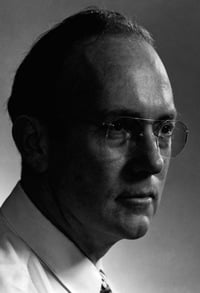
Charles H. Townes
-
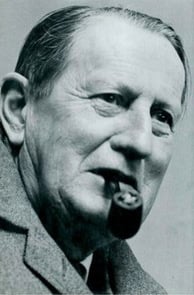
Sir James Darling
My headmaster at Geelong Grammar School and great denial-free thinking prophet (see F. Essay 39 for an explanation of prophets), Sir James Darling, similarly spoke the truth when he said that,
“The scientist can no more deny or devaluate the truths of spiritual experience than the theologian can neglect the truths of science: and the two truths must be reconcilable, and it must be of importance to each of us that they should be reconciled.” (See par. 327 of FREEDOM)
How right Townes and Darling were. Now that we have the true, human-condition-confronting scientific explanation of the human condition we can appreciate just how profound religious descriptions of the human condition were (read more about the profundity of religion in the set of ‘Religion deciphered’ Freedom Essays: 38, 39, 40 & 41).
Finally, it should be pointed out that not only ancient thinkers like Moses recognised the true ‘instinct vs intellect’ elements involved in the human condition, but also many contemporary thinkers, whose work you can read about in F. Essay 53.